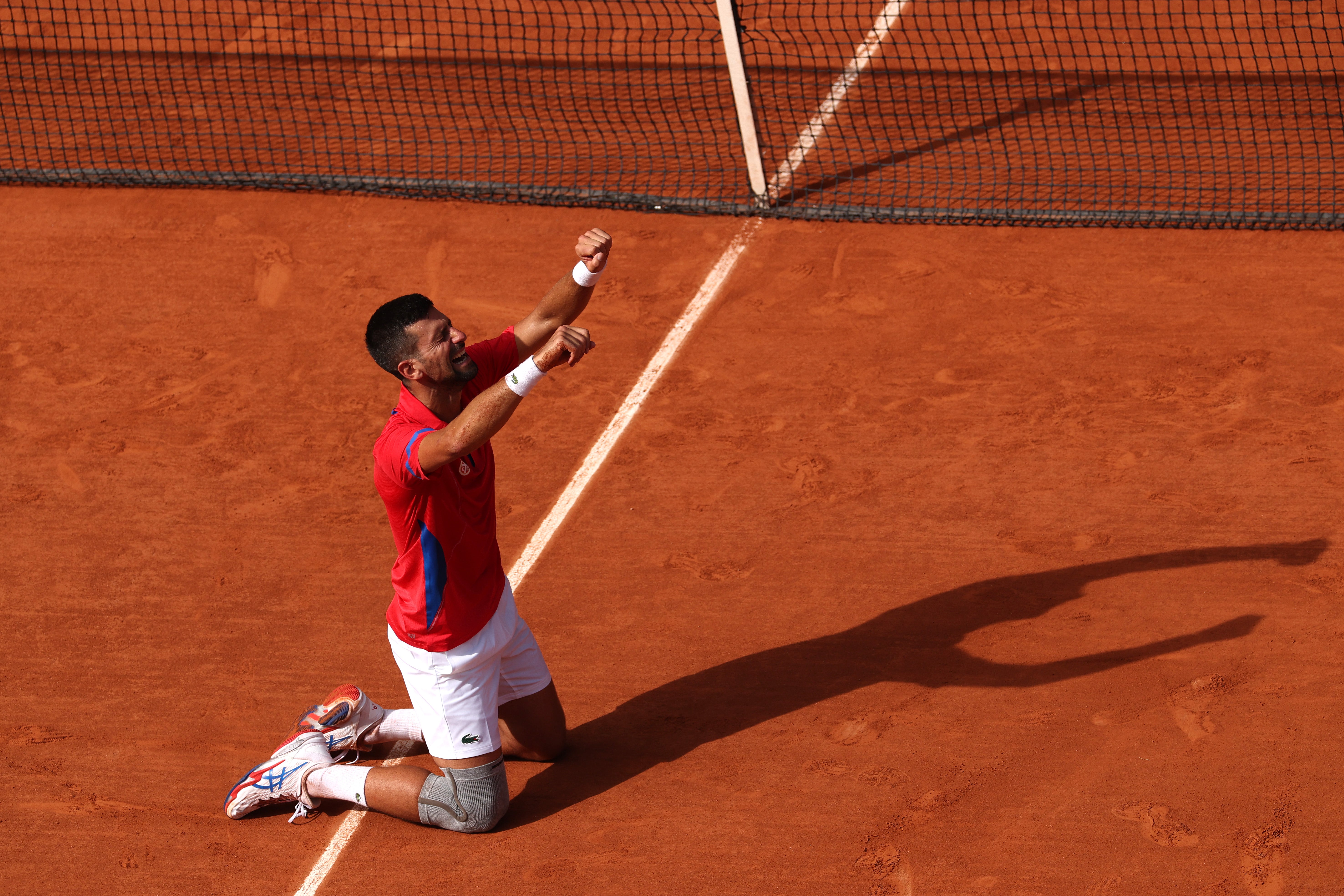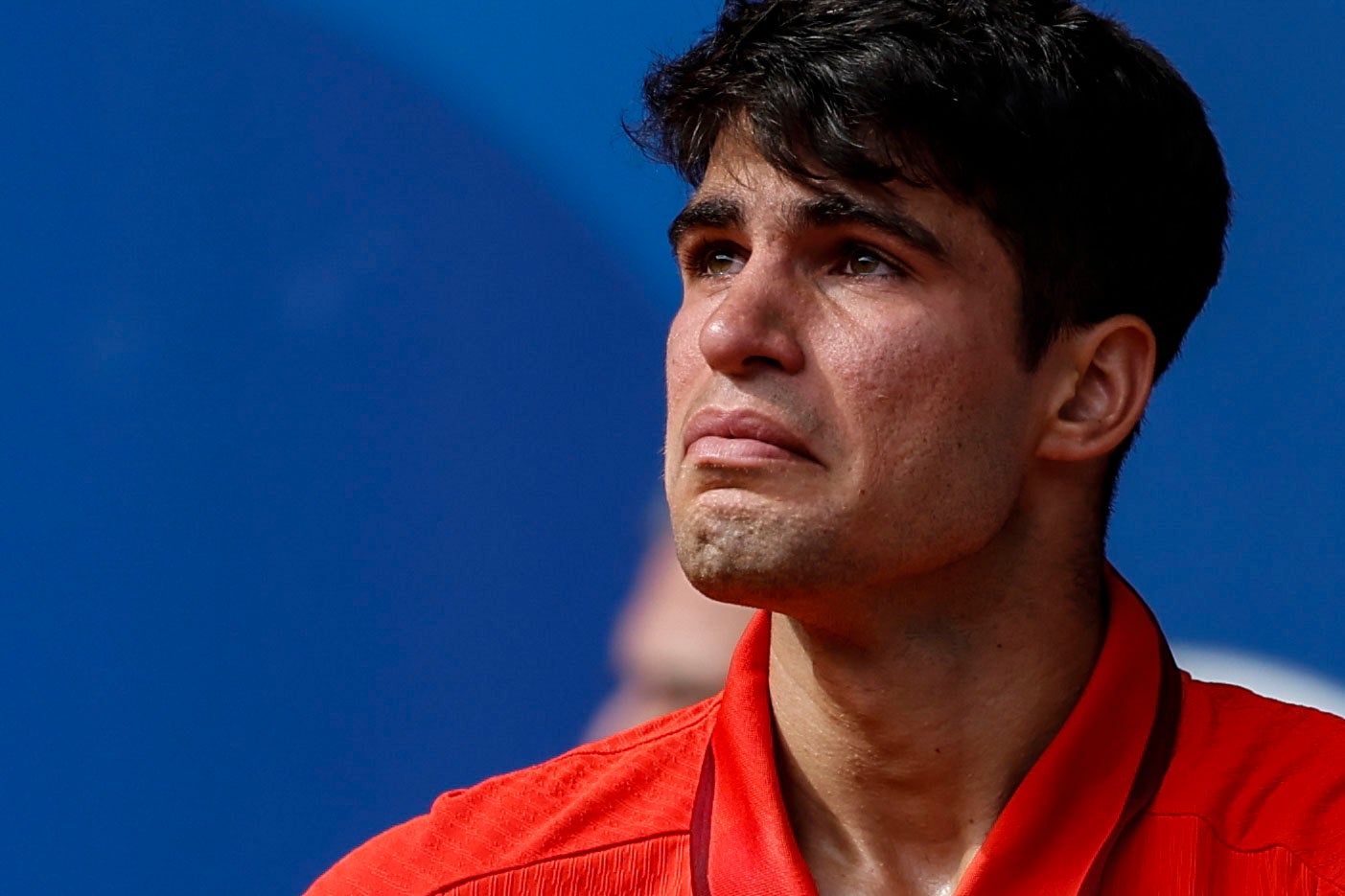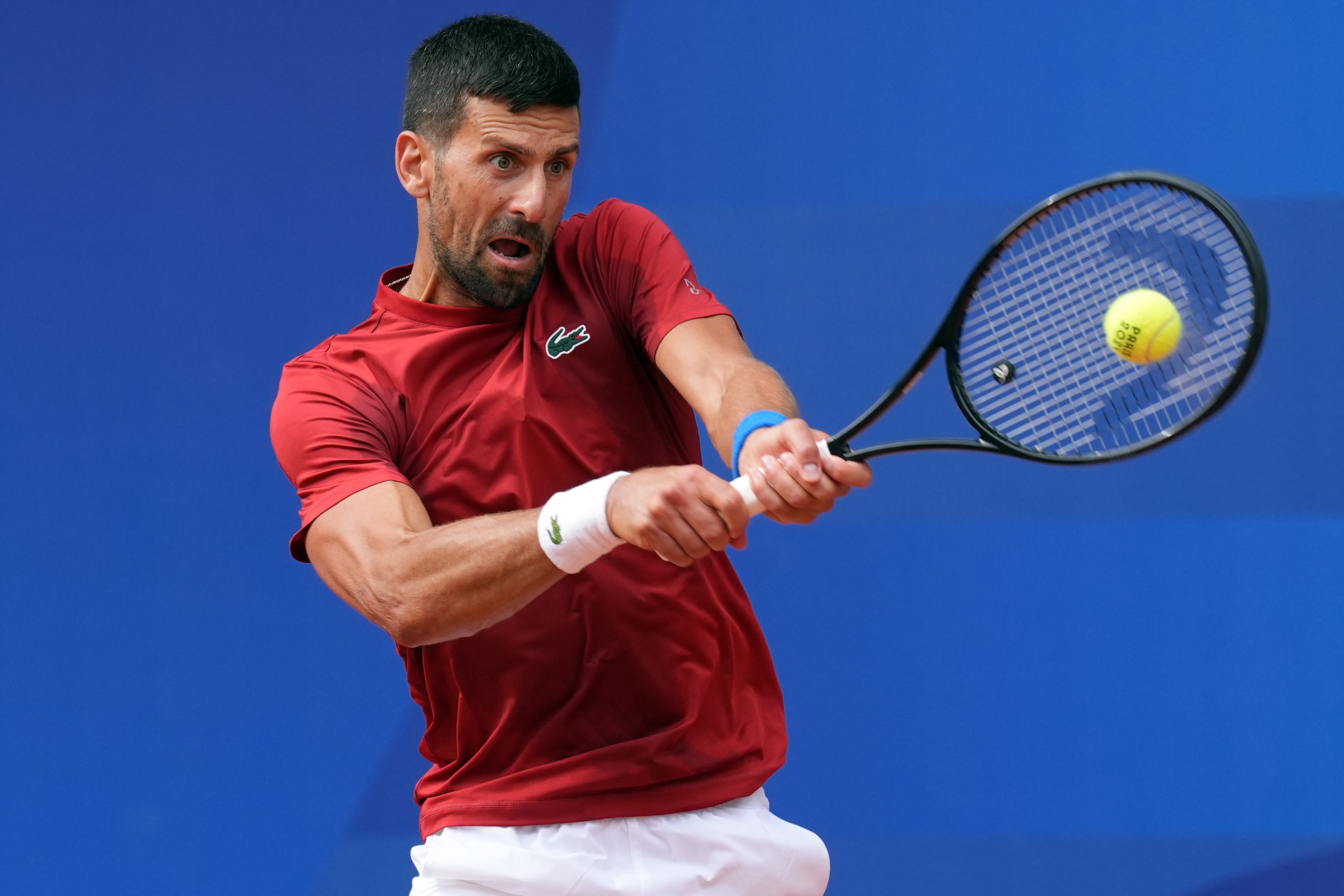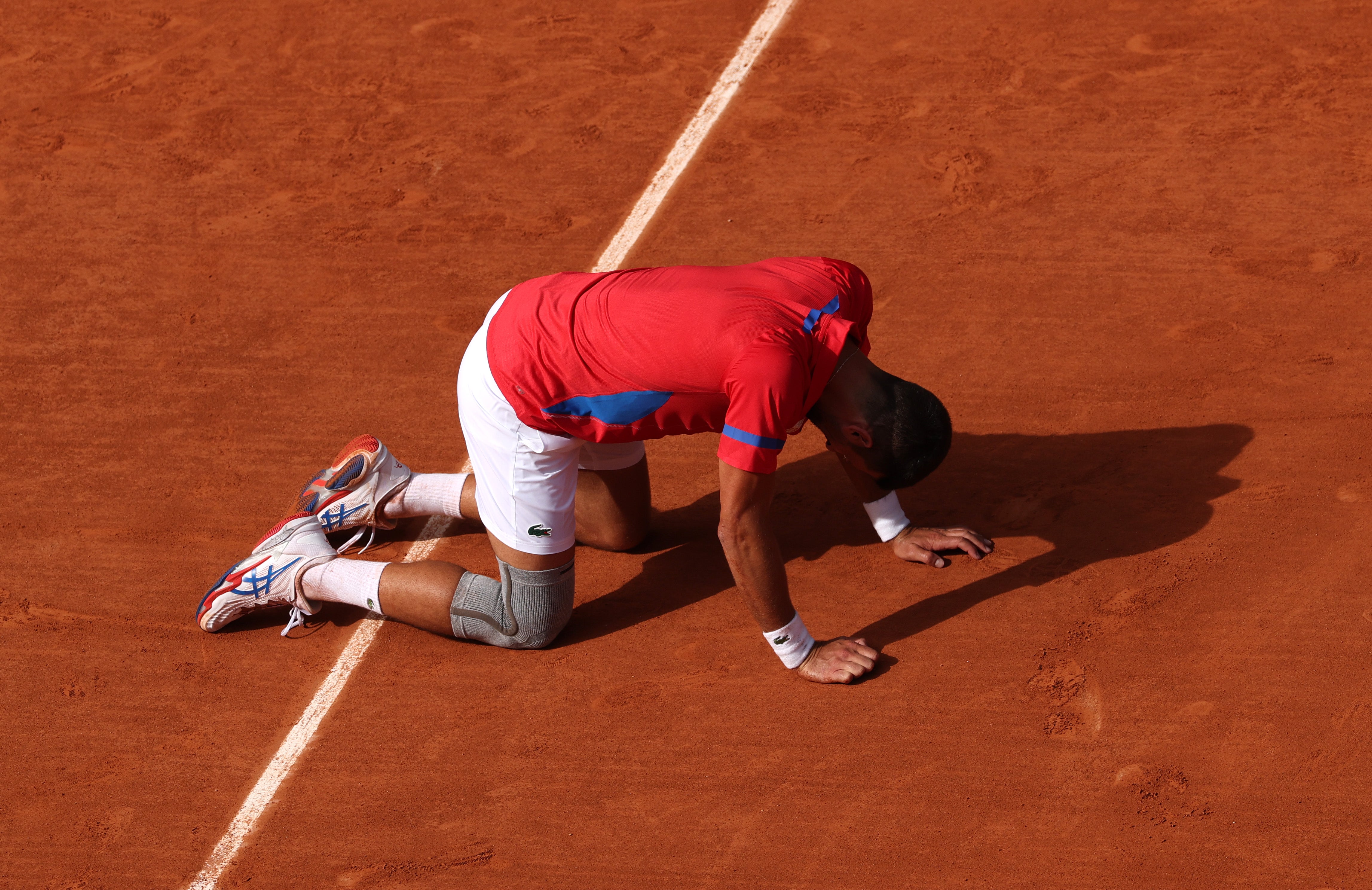In the aftermath of his Wimbledon final defeat to Carlos Alcaraz, Novak Djokovic found it remarkably easy to come to terms with the battering he had just taken on Centre Court.
As a chance to make further history slipped away and Alcaraz demonstrated his supremacy over a one-sided final, Djokovic reached peace by reminding himself that a bigger goal and more important opportunity would quickly arrive. After all, if there was one tennis match Djokovic could have picked to win at the start of the year, it wouldn’t have been the Wimbledon final.
Just 21 days later, an inspired Djokovic earned revenge and ended his long quest for a first Olympic gold medal, defeating Alcaraz 7-6 (3) 7-6 (2) in an all-time final at Roland Garros.
At 37 and at his fifth Olympics, Djokovic captured the one title that had so far evaded him in a bid to complete the career golden slam. Two months after tearing his meniscus in his right knee and appearing to be a doubt for the Olympics when he underwent surgery, Djokovic returned to the same court on Philippe-Chatrier to record one of the greatest victories of his career against his young rival, delivering a gold medal for Serbia that will rank highly among his record 24 grand slam titles.
In doing so, he managed to suppress Alcaraz just as the Spaniard was appearing to be a level above what Djokovic was able to produce at this stage of his career. Djokovic dug deep into his reserves, first denying and then outlasting Alcaraz in an titanic 93-minute opening set. Djokovic withstood Alcaraz’s powers of athleticism and shot-making in an epic last stand that displayed a vintage look at his greatest qualities as a tennis player. Djokovic endured, remaining solid in all aspects of his game, and delivered when the biggest moments arrived to claim a historic victory in one of the most memorable Olympics finals ever staged.
And with 10 Australian Opens, three French Opens, seven Wimbledon, four US Opens, seven ATP Finals, 40 ATP 1000 titles, Djokovic now has the Olympic gold to tick the final box that was missing in his illustrious career. By becoming just the fifth player to complete the career grand slam in singles, he joins Rafael Nadal, Andre Agassi, Serena Williams and Steffi Graf to claim another major milestone.
Djokovic needed to be at his very best to beat Alcaraz with history on the line, but he found a level that had looked beyond him for much of the season. Incredibly, Djokovic also ends an eight-month title drought.

A monumental final brought the rawest emotions: there weren’t many new feelings in the sport for Djokovic to experience but winning gold for his country was one. First there was shock, as he dropped his racket and turned to his box, eyes wide. Then came the tears, as Djokovic dropped to the clay and looked to the sky, shaking through sobs. At the far end of the court, Alcaraz was unable to speak as he was interviewed on TV, turning away to cover his face. He will have many more chances. Djokovic, who will be 41 by the time of the next Olympics in Los Angeles arrive, knew this was it, adding another layer to a legendary performance that flipped the script.

Djokovic admitted he felt “inferior” to Alcaraz after his humbling defeat in the Wimbledon final three weeks ago. On a hot, still afternoon at Roland Garros, the Olympics final was incomparable. Djokovic played at a much higher level in an opening set that brought a combined 13 break-point opportunities with Djokovic saving eight of those himself. He saved five of them in an epic ninth game of the set, keeping his opponent at bay when any one of them would have given Alcaraz the chance to serve for the set. As Alcaraz pressed for the advantage, producing a series of stunning retrievals, Djokovic was left chuckling in disbelief at what it was taking just to win a point.

But Djokovic survived to reach the tiebreak, waiting for his moment to strike. After the first six points were split, Djokovic snapped up a slower second serve from Alcaraz to fire a forehand winner. Alcaraz momentarily lost his composure and two consecutive misses from the baseline handed Djokovic set point. As Djokovic sent Alcaraz wide to his right, the Spaniard lined up the sensational forehand crosscourt winner on the run. But when he looked up, Djokovic was already there, lunging to his right to land a soft drop volley. Djokovic stayed in the same position with his arm raised as he edged ahead.

An hour later, they stood in the same position as the second tiebreak arrived. Alcaraz had managed to stay alive in the match, passing awkward moments on serve, but was unable to find momentum against Djokovic. Alcaraz remaining in the match, though, could have been an ominous sign. Since winning the French Open two months ago the Spaniard has managed to find a way to battle from behind time and time and again. Instead, Djokovic found another level in the tiebreak – an epic final reaching a grand conclusion.
Seven points from victory and knowing how difficult it had been to put Alcaraz away, Djokovic used the Spaniard’s tricks against him. In the key moment of the second tiebreak, Djokovic on the run dispatched a fine winner, running so wide to his left that he almost disappeared from the screen. As he hung up a lob that dropped inside the baseline, Alcaraz blinked, with a forehand slumping into the net.

It broke Alcaraz, and lifted Djokovic. From there, he produced three of the cleanest forehands he is ever likely to strike, throwing his entire weight behind a crosscourt winner that snapped viciously past Alcaraz. After falling behind, Alcaraz made two poor errors to give Djokovic match point. Sensing his moment, Djokovic held nothing back and another forehand winner, this time down the line, secured this final piece of tennis history.

